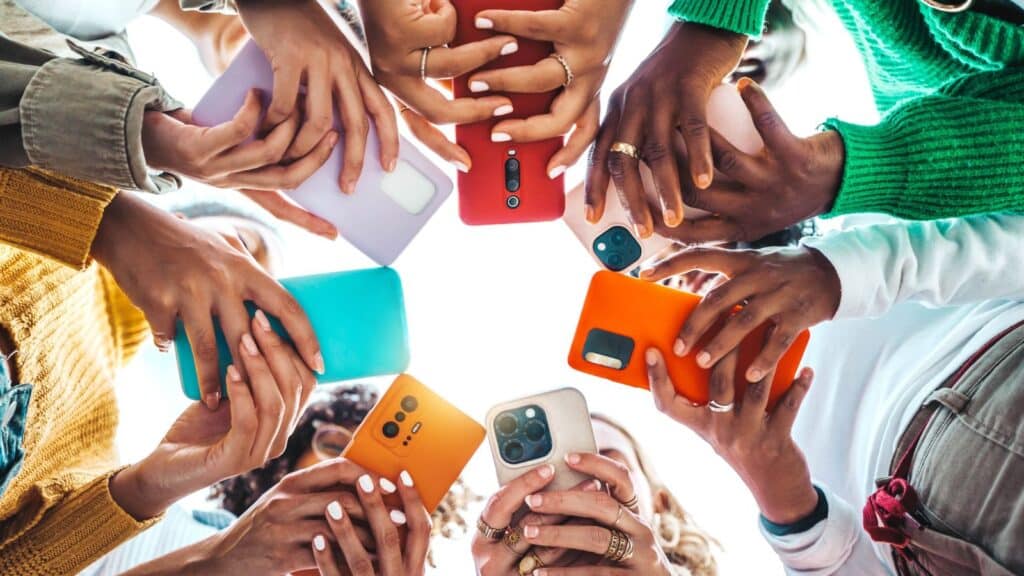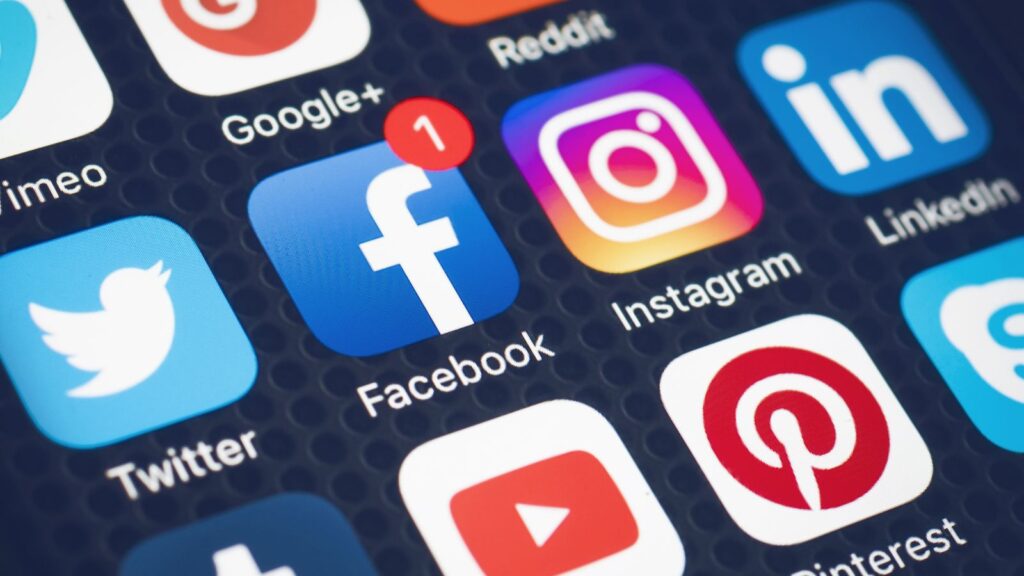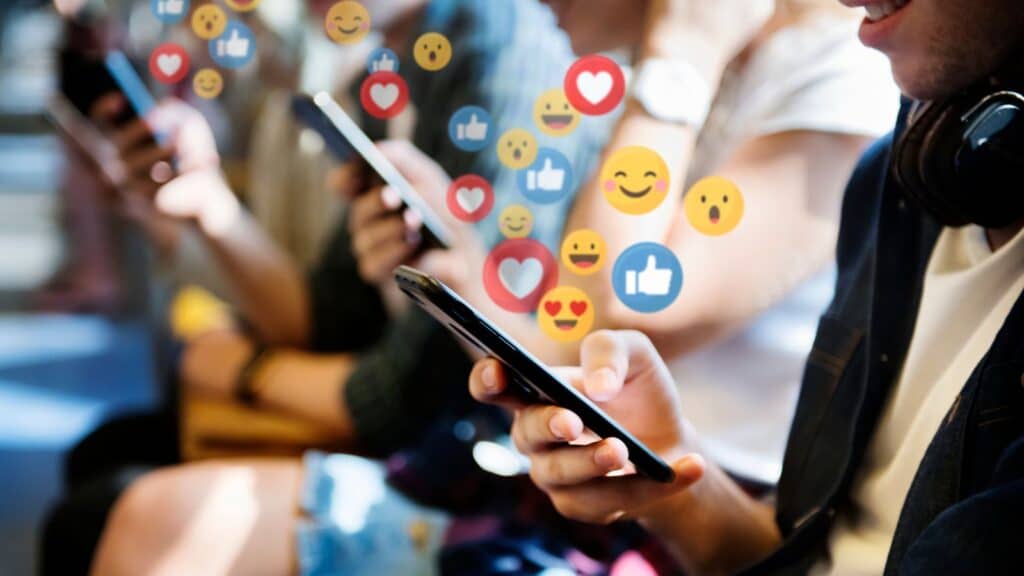Baby Boomers and The Great Generation have seen the world change in unimaginable ways, and the arrival of the digital age is significant. To go from a society without technology to one where everyone is reliant on digital devices is exciting but also jarring. As a result, many older people harbor strong opinions regarding technology, some of which are valid while others widen the generational tech divide. Here are 19 things older people believe about technology, whether they’re true or not.
Young People Are Tech-Addicts

For generations who grew up without screens or any recognizable form of technology, young people seem addicted to their gadgets. While many teens will roll their eyes when grandma tells them they’re addicted to social media, this is a real concern among experts across the globe.
Only Youngsters Can Use Social Media

A large part of ageism is the assumption that technology is reserved for young people. Unfortunately, older folks are prone to internalizing this stereotype, believing that they can’t become tech-savvy.
Online Relationships Aren’t Real

The days of online dating apps are well and truly upon us, much to the disdain of older people. Because romance could only be found in person during their youth, older generations often see online relationships as less genuine. What they might not realize is that online platforms can foster deep, meaningful connections in an increasingly digital world.
Gadgets Are Too Complicated

Many older people are easily overwhelmed by technology, either by the number of gadgets available or because they seem too complicated to use. While using smartphones, tablets, and computers is second nature to Millennials and Gen Z, tech is complicated for those who grew up without it.
Phones Are Just for Talking

Part of digital illiteracy is not realizing how many features the smartphones of today come with. Another common misconception among older folks is that phones are just for making and receiving calls.
Handwriting is Better Than Typing

In the writing vs typing debate, older folk fall firmly on the side of using pens and pencils. Having spent most of their lives cultivating their handwriting, forming letters, and scribbling down contact details, older generations can’t understand the obsession with typing. They may be right, though, as experts have found handwriting boosts brain connections more than typing does.
We’ve Lost Our Privacy

Concerns regarding data security are entirely valid and have been highlighted by numerous documentaries and deep dives. Suddenly, the years of older generations claiming we’ve lost our privacy to technology and social media seem worryingly topical.
Text-Speak Means Language is Declining

Some older people think youngsters speak entirely in abbreviations, replacing “people with “ppl” and laughing with “lol.” While the state of language isn’t quite that bleak, experts were concerned for a while that text-speaking would cause our literacy to decline.
Online News is Fake

There’s a pervasive misconception among older generations that online news is less trustworthy. Many seniors think that physical sources such as books and newspapers are somehow more reliable. While it’s true that some online sources aren’t credible, those who are digitally literate can easily spot fake news.
Video Games Are Unproductive

Studies show that older people are more likely to learn about tech if they see a reason for it. Computers and phones are easier to get behind as they serve practical communication purposes, but older generations perceive video games as useless. Without a clear practical use and played purely for fun, seniors often look down on those who play video games.
Online Banking isn’t Safe

Older generations are often deterred from using online banking because they’re afraid it’s unsafe. After using in-person banking systems for decades and cashing physical cheques, the move to a cashless society must seem jarring.
Older People Can’t Use Technology

Despite many older people being capable of digital literacy, many of them cling to the “you can’t teach an old dog new tricks” mentality. Older generations aren’t incapable of using smartphones and computers, but many of them put these limitations on themselves.
Technology Will Take People’s Jobs

Seeing a rise in self-checkout machines and robot cleaners has led many older people to wonder if AI will take people’s jobs. But the fears that AI will lead to job loss don’t take into account that technology actually creates more career opportunities.
Home Technology is Unnecessary

Smart home devices are often viewed by older people as frivolous or an unnecessary luxury. Trying to impress them with a new Alexa, wireless vacuum, or motion-sensitive lights likely won’t work.
AI Will Take Over the World

People have been worried about artificial intelligence for years, especially the older generations who can remember a time without it. Those with a tendency for nihilism are often convinced that AI-powered robots will take over society in a matter of years.
Tech is Replacing Human Interactions

Older generations value face-to-face communication far more than texting or online messaging. There’s a certain authenticity in talking to someone in person, and, indeed, this can’t be captured by technology. But while older people seem to think that face-to-face communication will die out forever, younger generations are re-discovering the value of traditional interactions.
Children Shouldn’t Use Technology

After playing outside as children and raising their own kids without screens, many older people believe youngsters shouldn’t be allowed to use technology. Many experts are inclined to agree, or at least suggest that parents reduce their children’s screen time.
Smartphones Make People Antisocial

Technology helps us to stay socially and emotionally connected with others, but older generations seem to think that anyone on a smartphone is being antisocial. Rather than staring at a screen, young people spend most of their time messaging friends or communicating through social media posts.
Kindles Hurt Our Eyes

Despite advancements in digital display, many older people hold on to the belief that e-readers damage our vision. In reality, modern-day e-readers such as Kindle use e-ink technology that cleverly mimics the look of paper. This helps to reduce eye strain in addition to font size adjustments.
19 Grim Realities of Dating After 50 That Are Often Overlooked

19 Grim Realities of Dating After 50 That Are Often Overlooked
26 Things That Will Be Extinct Because Millennials Refuse to Buy Them

26 Things That Will Be Extinct Because Millennials Refuse to Buy Them
24 Outdated Slang Terms You Absolutely Shouldn’t Be Using Anymore

24 Outdated Slang Terms You Absolutely Shouldn’t Be Using Anymore
25 Hardest Parts About Getting Older That No One Ever Talks About

25 Hardest Parts About Getting Older That No One Ever Talks About




